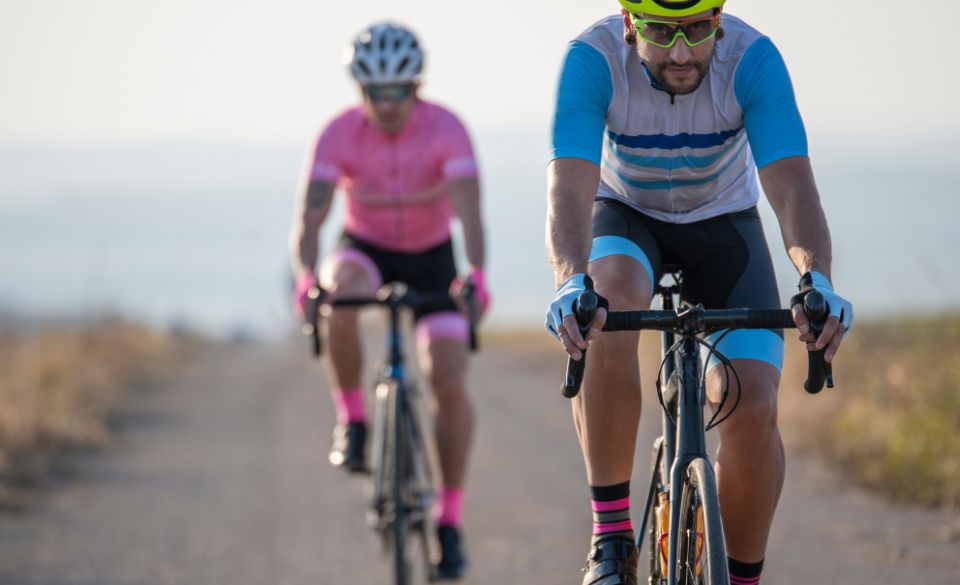
Cycling After Alcohol: Navigating the Fine Line
Page Contents
- Understanding the Effects: Alcohol and Cycling
- Safety First: The Dangers of Cycling Under the Influence
- Know Your Limits: Responsible Drinking and Cycling
- Alternatives to Consider: Sober Cycling and Safe Rides
- Dehydration and Alcohol: A Dangerous Duo
- Impaired Decision-Making: Assessing Your Ability
- The Morning After: Alcohol’s Lingering Effects
- The Responsible Cyclist: Setting an Example
Cycling and enjoying a drink with friends can be two delightful activities, but combining the two requires caution and responsibility. As cyclists, we cherish the sense of freedom and adventure that comes with exploring the open road, and consuming alcohol can have significant implications on our safety and performance. In this blog post, we’ll explore the effects of cycling after alcohol, the risks involved, and guidelines to ensure a safe and enjoyable ride.
Understanding the Effects: Alcohol and Cycling
Alcohol is a depressant that affects the central nervous system, leading to impaired judgment, coordination, and reaction times. These effects can be particularly dangerous when cycling, as quick decision-making and precise motor skills are crucial for safe navigation on the road.
Studies have shown that even low to moderate alcohol consumption can lead to impaired cycling performance. A study published in the Journal of Applied Physiology found that cyclists’ reaction times were significantly slowed after consuming alcohol, increasing the risk of accidents and collisions.
Safety First: The Dangers of Cycling Under the Influence
Cycling under the influence of alcohol poses a significant risk not only to yourself but also to others on the road. Impaired judgment and coordination can lead to poor decision-making, increased risk-taking, and reduced awareness of potential hazards. These factors can contribute to accidents, injuries, and even fatalities.
In many jurisdictions, cycling under the influence of alcohol is considered a legal offense, with similar penalties to those for driving under the influence (DUI). A study in the Journal of Transportation Safety & Security highlighted the need for public awareness of the risks and consequences of cycling under the influence to reduce alcohol-related incidents.
Know Your Limits: Responsible Drinking and Cycling
As cyclists, we can still enjoy the occasional drink while being responsible and mindful of our safety. Knowing your limits and understanding the effects of alcohol on your body can help you make informed decisions about cycling after drinking.
A general rule of thumb is to wait a sufficient amount of time after drinking before getting on your bike. The rate at which your body metabolizes alcohol can vary based on factors like body weight, gender, and the type of alcohol consumed. As a rough guideline, it’s best to wait at least one hour for each standard drink before cycling.
Alternatives to Consider: Sober Cycling and Safe Rides
If you’ve had alcohol and are unsure about your ability to cycle safely, it’s best to choose an alternative mode of transportation or opt for a designated driver. Many cities offer bike-sharing programs, public transportation, or ride-sharing services that can safely take you home.
Planning ahead and arranging for a sober ride or ensuring you have a safe way to get home after a social event can prevent the temptation to cycle under the influence. Remember, it’s always better to prioritize safety over convenience.
Dehydration and Alcohol: A Dangerous Duo
One of the significant concerns of cycling after alcohol consumption is the potential for dehydration. Alcohol is a diuretic, meaning it increases urine production and can lead to fluid loss. When cycling, especially in warm weather or for extended periods, staying properly hydrated is crucial for performance and overall well-being.
A study published in the Journal of the International Society of Sports Nutrition found that alcohol consumption before exercise can exacerbate dehydration and impair exercise performance. Dehydration can lead to fatigue, dizziness, and decreased cognitive function, making it even more hazardous to cycle after drinking.
Impaired Decision-Making: Assessing Your Ability
Before considering cycling after alcohol, it’s essential to assess your physical and mental state. Even if you feel “okay” to ride, remember that alcohol impairs judgment, and your self-assessment might be inaccurate.
If you’ve had more than one drink or if you’re feeling even slightly impaired, it’s best to avoid cycling altogether. Choose an alternative way to get home or ask a sober friend to accompany you on your ride. Taking this precaution can prevent accidents and ensure your safety.
The Morning After: Alcohol’s Lingering Effects
One common misconception is that you can safely cycle the morning after consuming alcohol. While you might not feel drunk anymore, alcohol can still be present in your system and affect your performance.
The residual effects of alcohol can include lingering dehydration and impaired cognitive function. A study in the European Journal of Applied Physiology showed that the negative impact of alcohol on cognitive and physical performance can persist even after a night’s sleep.
The Responsible Cyclist: Setting an Example
As cyclists, we have a responsibility not only to ourselves but also to our fellow road users. By making responsible choices and avoiding cycling after alcohol, we can set a positive example for others.
Encourage your cycling friends and community to prioritize safety and responsible behavior. Planning designated drivers or alternative transportation options for social gatherings can ensure everyone gets home safely.
In conclusion, the combination of cycling and alcohol is a risky endeavor that can compromise your safety and the safety of others on the road. Alcohol impairs judgment, coordination, and reaction times, making cycling under the influence dangerous. Always prioritize safety and responsible behavior when it comes to cycling and alcohol.
If you’ve consumed alcohol, wait a sufficient amount of time before cycling or choose an alternative mode of transportation. Dehydration and impaired decision-making are significant concerns when cycling after drinking. Be a responsible cyclist and set a positive example for others by making safe and informed choices. Remember, cycling is a source of joy and freedom, and by being responsible, we can ensure that every ride is a safe and enjoyable one.



